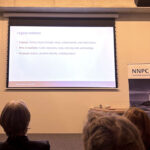In recent years, we have seen a decrease in the number of files, but the costs of lawyers and experts remain high. The trend of rising costs is connected to several causes, such as inflation, the limited availability of suitable experts and lawyers and the growing complexity of certain technical and legal issues. Another important factor is the number of reinsurance claims, such as wreck removal, where NNPC’s own retention on costs with the reinsurer is usually quickly spent.
Over the last year, NNPC therefore took additional steps to better control these costs on a per file basis by taking the among others, following measures,:
- Working with a fixed pool of service providers , who have experience of working with NNPC and its Members.
- At the start of each claim, a critical assessment is made of the need for an expert or lawyer and clear instructions given on the nature and scope of the assignment. During the assignment also NNPC will also give new instructions in a timely manner or terminate an assignment where all necessary information has been collected and the inspection has been duly carried out.
- Where possible, by working on the basis of a fixed fee or indication that take into account the nature and complexity of the assignment.
- By properly coordinating the handling of the file and the role of the expert or lawyer with the Member to ensure that there is clarity about their role and attendance on board. For example, during an inspection on board a ship, assignments can often be handled much more efficiently with the assistance of the crew.
- By taking into account previous experience with certain cargoes, ports or parties. For example, where specific damage to a steel cargo is regularly reported in the same port, the claims handler can often make use of existing information and experience.
Based on the cost figures for 2024, these measures appear to have had an effect. Whilst it is too early to make any predictions for the current year we are confident that with the right preventive measures, the costs of claims handling will be further mitigated.





